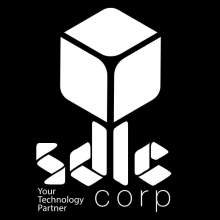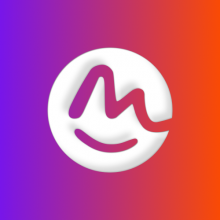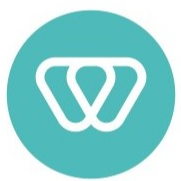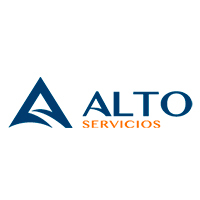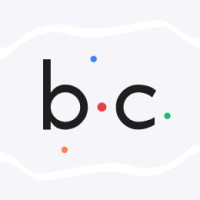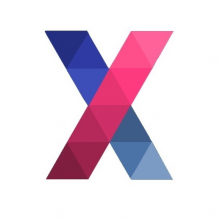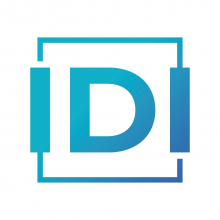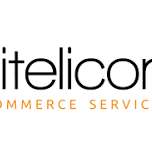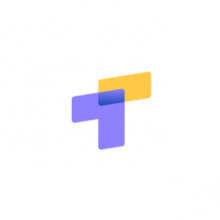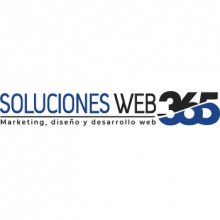
There are 57 Companies in Spain
that provide Laravel Development Services!
Spain is one of the most important ICT markets in Europe, in terms of volume. In 2025, the net worth of the entire sector was estimated at around $62.9 billion. This makes it an important national economy. According to a report from ICEX, there are more than 34,000 ICT companies in Spain that engage 550k+ workers in this field.
Discover Top IT Companies in Spain specialized in Laravel and other related services. Find the best IT service providers for your projects.
Laravel is a popular open-source PHP web application framework used for building web applications and websites. It's known for its elegant and expressive syntax, as well as its rich set of tools and libraries that simplify common web development tasks. Laravel was created by Taylor Otwell and released in 2011, and it has since gained widespread adoption in the PHP development community
Handpicked companies • No obligation to hire • 100% risk-free
Featured Companies in Spain
This month, the following Laravel Development companies managed to provide an outstanding service and support. It's worth taking a look.
Mobirevo is a Leading custom software development agency focused on web, mobile app development & saas application development.
Explore Top Laravel Development Companies in Spain
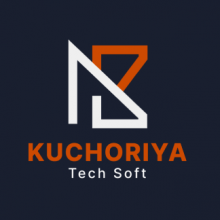
Kuchoriya TechSoft Verified Company
Las Lagunas de Mijas, Spain Head office in: United States
Kuchoriya Techsoft—Mobile app, web, and custom software development company helping businesses with scalable digital transformation solutions.
¿Necesitas presencia en Internet? Alto Servicios Comunicación es una Agencia de Marketing Digital y Diseño web a medida, especializada en SEO y SEM
Services:
Fire Bee Techno Services is an ISO-Certified Blockchain and AI Development Company In india and across the world with 13+ years of experience.
We are experts in business management and technical development of digital solutions.
Best Mobile Apps Development Company in Dubai
Onyx is a digital agency working globally and providing results-driven solutions. Boost your brand's performance via SEO, Web Design & Development.
Services:
Digital Marketing, Sales & Web Development solutions for businesses. Award-winning global agency ExpandX Marketing & Web.
Digital Marketing and Technology Firm
En Studio128k desarrollamos software desde cero: apps móviles, sistemas internos, integraciones complejas, automatizaciones.
Engineering what comes next.
Appetite Creative: The digital experiences studio - connecting brands to today’s audiences
Services:
Codi10 delivers expert web development, mobile apps, digital marketing, and social media management to elevate brands in the digital era.
Services:
Strategic consulting and e-commerce operations for brands and manufacturers.
Digital marketing agency from Barcelona specialized in SEO, SEM, web design, and custom development.
Services:
Ofrecemos diseño web en Valencia, marketing digital, posicionamiento en Google para hacer crecer tu negocio online.
Services:
At LIQUID we care about providing bespoke and robust solutions focusing on user experience. We design and build top websites, web apps & mobile apps.
A Barcelona-based digital marketing agency specializing in web design, SEO, SEM, and digital consulting. We will grow you.
Services:
Desarrollo Web Total delivers custom software solutions, specialising in web development, mobile apps, UX/UI, and cloud-based technologies.
Filter Laravel Development Companies in Spain by Cities
Find the right tech company near you or from a specific city. Some of the best companies might be located in smaller cities.
Find more Laravel Development companies around the world
TechBehemoths is the world's most advanced and user-friendly platform to match IT Companies with real clients without hustle.
The ICT Industry in Spain: Insights and Data
Spain is one of the most important ICT markets in Europe, in terms of volume. In 2025, the net worth of the entire sector was estimated at around $62.9 billion. This makes it an important national economy.
According to a report from ICEX, there are more than 34,000 ICT companies in Spain that engage 550k+ workers in this field.
Additionally, the digital economy contribution of Spain, which includes the ICT industry, contributed 26% of Spain’s GDP in 2024. Due to its geographical location and favorable IT climate, the industry evolves with big steps, and sometimes it appears that it overwhelms the infrastructure.
Why You Should Work With a Spanish Company
Spain is great for all types of IT professionals and companies - from digital nomads and startups, up to big corporations, you can find them all in Spain. The best part is that social education adds great value to digital business culture and develops the environment and industry, making it a great opportunity both for businesses and professionals.
Another reason why Spanish IT companies are a good option is the hourly rate and reliability. According to Payscale, the average hourly rate of a developer is around 25.43 Euros, which is below the European average. Also, the good business tradition will ensure you a sufficient and healthy experience with your projects.
What You Should Be Aware of When Working With Spanish IT Companies
Although it has experienced a huge growth in the sector, Spain has a shortage of qualified, experienced information technology (IT) professionals to meet the growing demand, especially in the major cities, which dominate the IT market in Spain. This means that, together with great project experience, there is a risk of average project execution, in spite of having higher expectations.
Are Spanish Companies Reliable?
In terms of reliability, Spain has never been the top leading country, but also not the last. Due to social culture, it is known that Spanish companies like to bargain and negotiate the prices & services. While some may find this frustrating, most of the businesses like this feature, as it’s one of the business fundamental practices.
How the Spanish IT Industry Relates to the Neighboring Countries
With all the IT industry growth Spain has registered in the last few years, the country competes with France, which has also managed to score impressive numbers in the IT sector. However, the markets are slightly different for both of them, including but not limited to linguistic differences. Probably, the cases of Spain and France are two extremely important cases where culture crosses the IT industry.
Overall, Spain has managed to keep the IT industry growing, even with the human resources challenges that it is facing. And it is expected in the coming years that the regional IT competition will lead to a surprise evolution and increased attractiveness to potential clients.
Most of the Spanish IT companies are already registered on TechBehemoths and can be found on their dedicated page. Feel free to contact any web agency, IT firm, or software company you consider that can help your project.
What is Laravel and what are its benefits for your projects?
Laravel is a popular open-source PHP web application framework used for building web applications and websites. It's known for its elegant and expressive syntax, as well as its rich set of tools and libraries that simplify common web development tasks. Laravel was created by Taylor Otwell and released in 2011, and it has since gained widespread adoption in the PHP development community. Here are the key aspects and features of Laravel:
-
Elegant Syntax
-
MVC Architecture
-
Artisan CLI
-
Database Abstraction
-
Blade Templating Engine
-
Middleware
-
Authentication and Authorization
-
Routing
-
Caching
-
Testing
-
Security
-
Community and Ecosystem.
-
Scalability
When choosing a PHP framework for a project, there are several alternatives to Laravel, each with its strengths and use cases. The choice depends on project requirements, familiarity with the framework, and specific preferences. Here are some notable PHP frameworks that often compete with Laravel:
-
Symfony: Symfony is a high-performance PHP framework known for its flexibility and modularity. It is often used for large, enterprise-level applications. Laravel actually uses several Symfony components under the hood. Symfony provides robust tools for building web applications, APIs, and microservices.
-
Zend Framework (Laminas): Zend Framework, now known as Laminas, is a mature framework that focuses on building scalable and enterprise-grade applications. It provides a collection of reusable components for various tasks, allowing developers to choose and integrate only what they need.
-
CodeIgniter: CodeIgniter is a lightweight and straightforward framework that emphasizes simplicity and speed of development. It's often chosen for smaller projects and rapid application development (RAD). While it has a smaller feature set compared to Laravel, it's known for its minimal learning curve.
-
CakePHP: CakePHP is a full-stack framework that focuses on convention over configuration (CoC). It comes with features like scaffolding, a built-in ORM, and a friendly community. It's known for its simplicity and convention-driven development.
Companies specialized in providing services using Laravel can significantly benefit relevant projects. Their expertise in Laravel development allows them to efficiently create customized web applications that meet specific project requirements. With a deep understanding of Laravel's capabilities, these companies can ensure the project benefits from Laravel's robust features, clean code structure, and security mechanisms.
They expedite development using Laravel's built-in tools and extensive package ecosystem, making them well-suited for both small-scale and enterprise-level applications. Security is a top priority, with specialists implementing best practices to protect against common web vulnerabilities, enhancing the project's safety, especially when dealing with sensitive data.
After the project launch, these specialized companies offer ongoing maintenance and support, addressing issues, applying updates, and ensuring the application's long-term reliability. They also excel in integration with third-party services and technologies, expanding the application's functionality and enhancing the user experience.
In addition, some companies may offer UX and design services, further improving the project's visual appeal and usability. Through rigorous testing and quality assurance, they identify and resolve potential issues before deployment, ensuring the application performs reliably across various devices and browsers.
